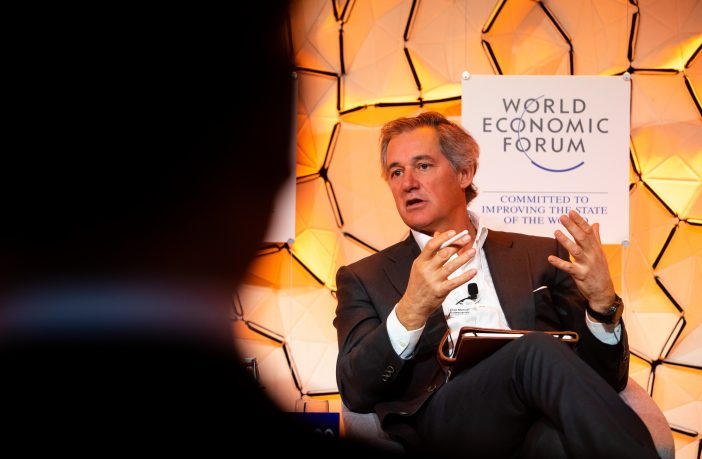- Speaking at Davos, José Manuel Entrecanales, CEO and chairman of ACCIONA, emphasised the need for sustainable and scalable business models that will contribute to ensuring access to clean energy in disadvantaged and underprivileged communities of the world.
In the context of the World Economic Forum in Davos, ACCIONA’s Chairman and CEO took part was taking part in a round table discussion entitled “Providing clean energy in fragile contexts”, alongside Filippo Grandi, the United Nations High Commissioner for Refugees (UNHCR), and Vincent Biruta, Rwanda’s Foreign Minister, among others.
The invited panelists discussed how investing in energy infrastructure is an important part of providing access to clean electricity in these areas, while helping reduce the environmental impact of refugee camps and places with very high poverty rates.
“A philanthropic approach is needed, but it can only solve so much”, Entrecanales pointed out. “To fully address this challenge, an initial business model needs to be developed, which proves self-sustaining. Then, it will be able to grow naturally”.
José Manuel Entrecanales referred to the experience of acciona.org in this subject. ACCIONA’s international foundation provides clean energy and water services in remote areas of Peru, Mexico and Panama, and participates in refugee programs in places such as Ethiopia. “In Latin America, we have managed to create a basic business model. We started these projects with a philanthropic approach, but we were then able to transform them into social enterprises that proved self-financing, often counting on cooperation from governments”.
“Around one billion people are today lacking energy access. We need to work on developing effective and scalable models to combat this”, Entrecanales concluded.
Author: Bryan Groenendaal















